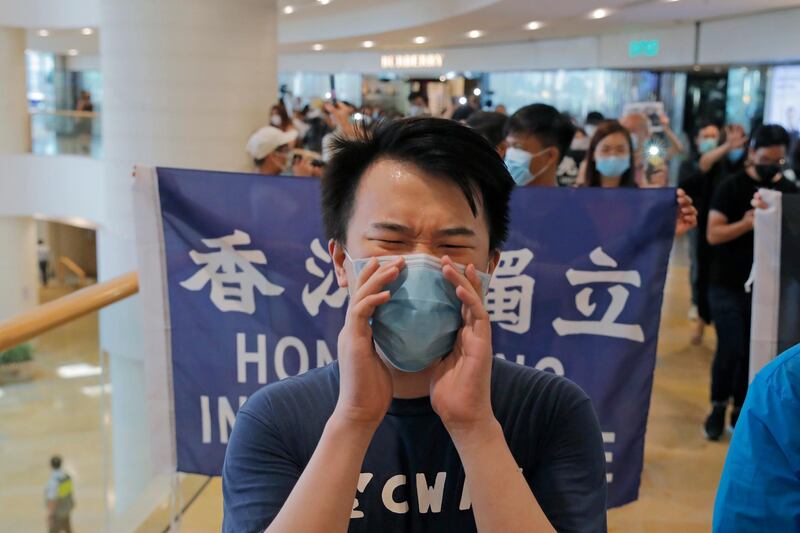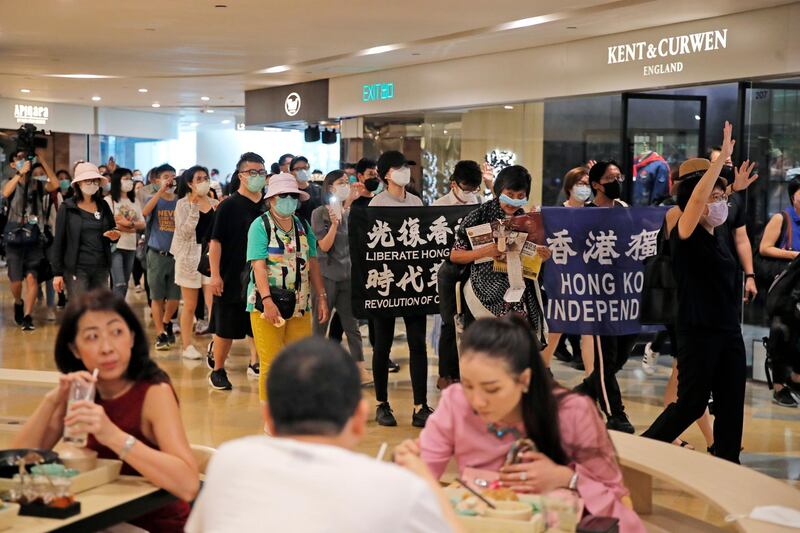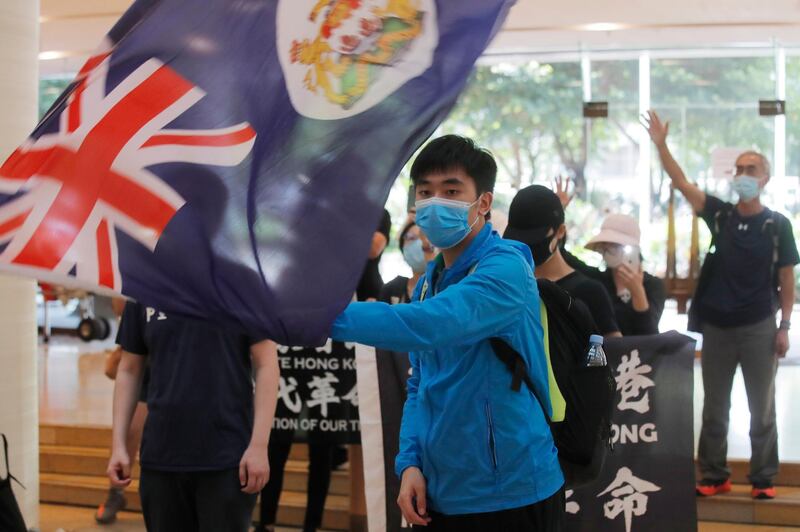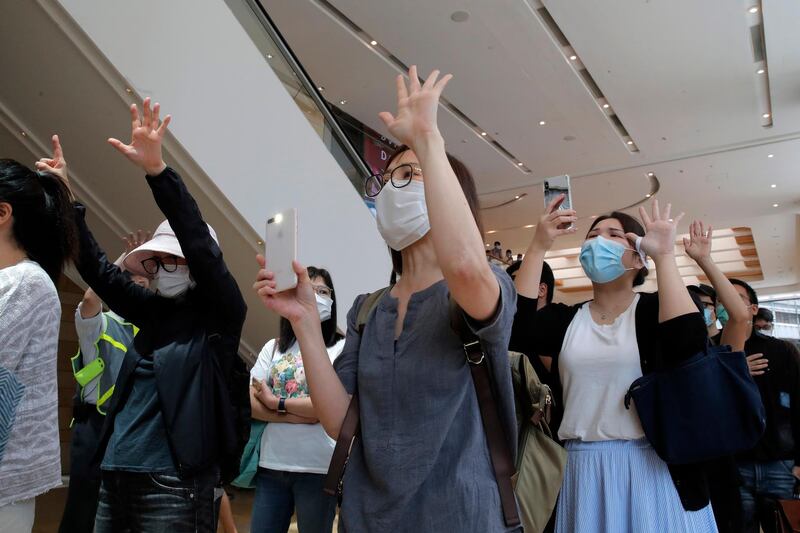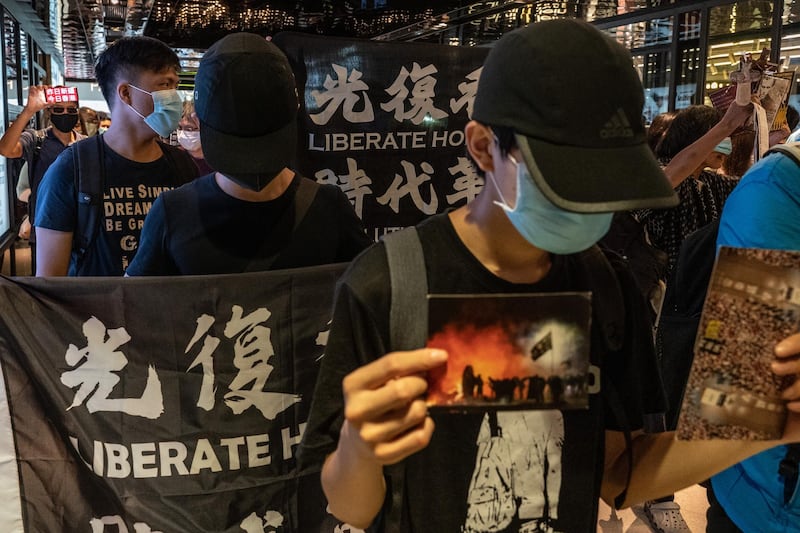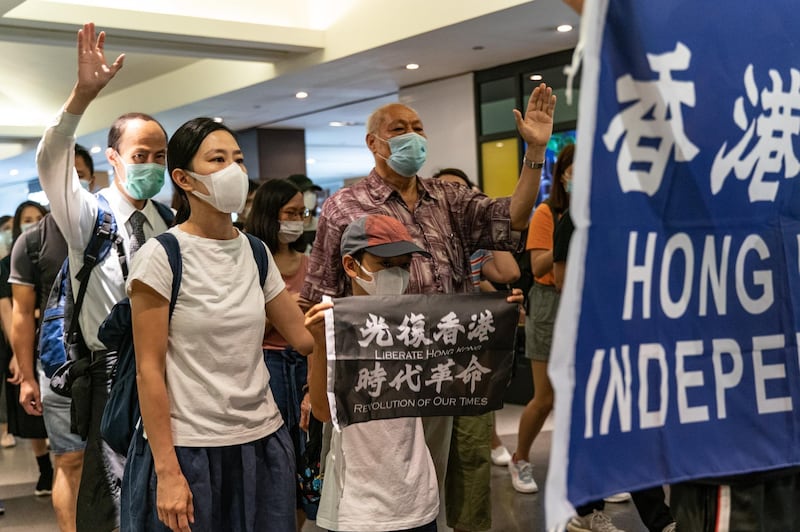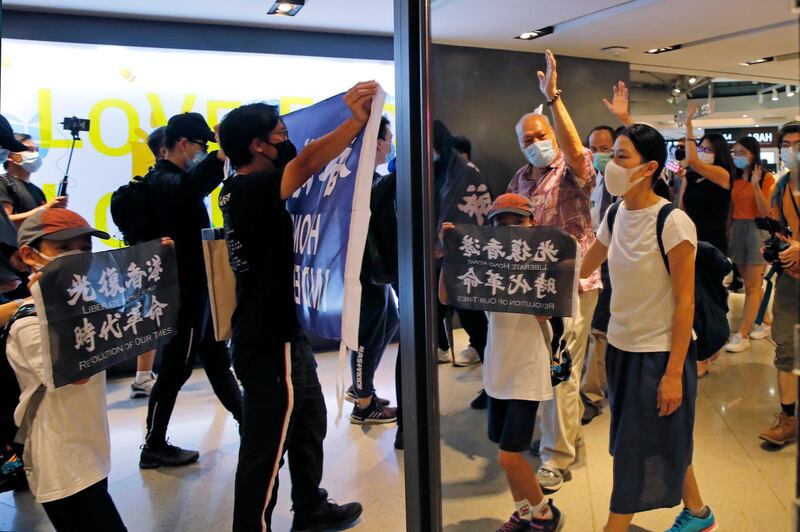Hong Kong police made the first arrests under Beijing's new national security law on Wednesday as the anniversary of the city's handover to China was met by thousands defying a ban on protests.
Police deployed water cannon, pepper spray and tear gas throughout the afternoon, arresting more than 180 people, seven of them for breaching the new national security law.
The confrontations came a day after China imposed its controversial legislation on the restless city, a historic move decried by many Western governments as an unprecedented assault on the finance hub's liberties and autonomy.
Beijing said the law would restore stability. But its imposition sparked the worst unrest in months.
A man found in possession of a Hong Kong independence flag became the first person to be arrested under the law, police said on Wednesday.
"A man was arrested for holding a #HKIndependence flag in #CausewayBay, Hong Kong, violating the #NationalSecurityLaw," police wrote on their Twitter account, alongside a picture of the man and the flag.
"This is the first arrest made since the law has come into force."
The law makes secessionist, subversive or terrorist activities illegal, as well as foreign intervention in the city's internal affairs. It was imposed by China after months of anti-government protests in the semi-autonomous territory last year.
Hong Kong police also used water cannon to disperse activists protesting against Beijing's new national security legislation.
City leader Carrie Lam strongly endorsed the law in her speech marking Wednesday's anniversary of Hong Kong's handover from colonial Britain.
"This decision was necessary and timely to maintain Hong Kong's stability," she said after a flag-raising ceremony.
A pro-democracy political party, The League of Social Democrats, organised a protest march during the flag-raising. About a dozen participants chanted slogans echoing demands from protesters last year for political reform and an investigation into accusation of police abuse.
The law's passage on Tuesday further blurs the distinction between the legal systems of semi-autonomous Hong Kong, which maintained aspects of British law after the 1997 handover, and the mainland's system. Critics say the law effectively ends the "one country, two systems" framework under which Hong Kong was promised a high degree of autonomy.
The law directly targets some of the actions of anti-government protesters last year, which included attacks on government offices and police stations, damage to subway stations and the shutdown of the city's international airport.
Acts of vandalism against government facilities or public transit can be prosecuted as subversion or terrorism, while anyone taking part in activities deemed as secessionist would also be in breach of the new law.
